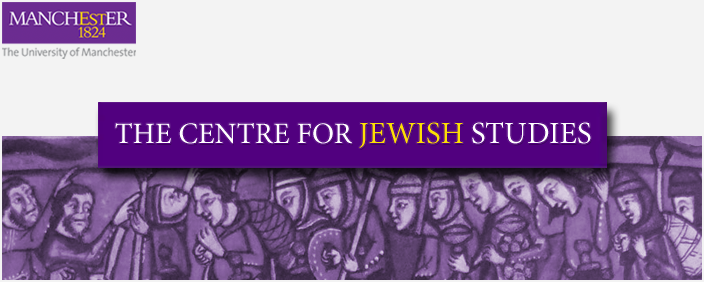4. Political Zionism
Herzl and Joseph Massel
 In 1896, the Viennese Jewish journalist Herzl published his famous book, Judenstaat (German "Jew-State"), in which he laid out his solution to ‘the Jewish Question’. Unconvinced that Jewish political, social and educational Emancipation would ever eradicate anti-Semitism among the gentile nations, he argued instead for a national State as a place of refuge (although he was vague about whether or not it would be in Palestine).
In 1896, the Viennese Jewish journalist Herzl published his famous book, Judenstaat (German "Jew-State"), in which he laid out his solution to ‘the Jewish Question’. Unconvinced that Jewish political, social and educational Emancipation would ever eradicate anti-Semitism among the gentile nations, he argued instead for a national State as a place of refuge (although he was vague about whether or not it would be in Palestine).
In Manchester as throughout Britain, Herzl’s ideas were received unenthusiastically by the Jewish elite classes, for whom assimilation into the host country’s culture in all but religion was the ideal. For many of them, the Jewish ‘Mission’ to propagate the religious teachings of Judaism to the world was a grander and more comforting vision than Herzl’s dangerous and subversive view. After all, it was argued, would not the very existence of a Jewish State destroy the credibility of Jewish loyalty to the host country and aggravate anti-Semitism? Among the deeply suspicious leaders in Manchester, Barrow Belisha decried the Herzlian Zionists as "Jewish Fenians", while Nathan Laski, who chaired a local meeting of the Zionists, felt it necessary to point out that in so doing he was not himself subscribing to their cause.
 In stark contrast, the Eastern European Jews were profoundly impressed by Herzl. When a conference of all the synagogues in Manchester was called immediately before the First Zionist Congress (Basle, 1897), it was decided to send Joseph Massel, a Russian poet and Hebraist who had arrived in Manchester in 1895, as their representative. Under his leadership, Dorshei Zion immediately adopted the new political interpretation of Zionism. Massel was also the owner of the city’s first Jewish and English printing press, which produced an effective stream of Zionist propaganda and did much to encourage the growth of a Jewish national consciousness among Manchester Jewry.
In stark contrast, the Eastern European Jews were profoundly impressed by Herzl. When a conference of all the synagogues in Manchester was called immediately before the First Zionist Congress (Basle, 1897), it was decided to send Joseph Massel, a Russian poet and Hebraist who had arrived in Manchester in 1895, as their representative. Under his leadership, Dorshei Zion immediately adopted the new political interpretation of Zionism. Massel was also the owner of the city’s first Jewish and English printing press, which produced an effective stream of Zionist propaganda and did much to encourage the growth of a Jewish national consciousness among Manchester Jewry.
__________________________
IMAGE AND DOCUMENT CREDITS: Theodore Herzl (A Chouraqui, Theodore Herzl), Joseph Massel (© Manchester Jewish Museum), Massel's invitation (© Manchester Jewish Museum). Full reference: Sources.




